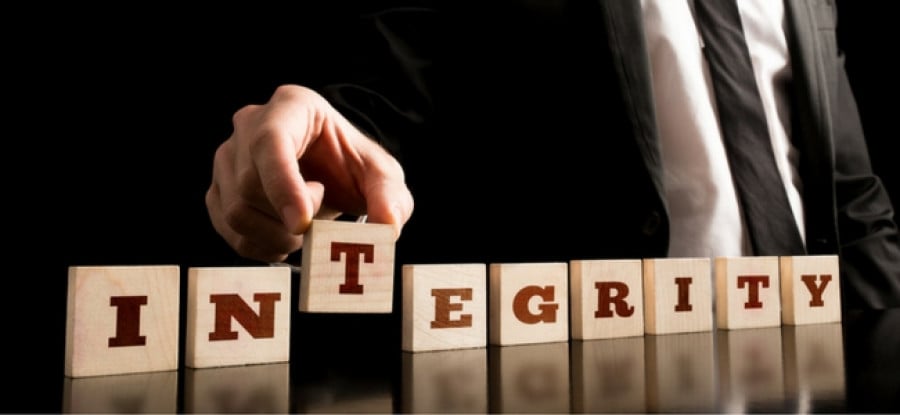Is whistleblowing in sport fit for purpose? Part 2 – Analysis and recommendations

This two-part article explores whether the existing cultures and regimes of whistleblowing in sport are fit for purpose.
Part 1, available here, explains the importance of whistleblowing in sport and sets out the current legal protections offered in cycling, football and athletics.
Part 2 below asks if enough is being done to protect and assist whistleblowers, and explores what further steps can be taken to promote effective whistleblowing in sport in the context of the Lance Armstrong1, FIFA2 and RUSADA scandals3. Specifically, it looks at:
- Is enough being done to protect and assist whistleblowers?
- What more can be done to encourage whistleblowing: conclusions and recommendations from the authors.
Is enough being done?
The three sports discussed in Part 1 - cycling, athletics and football – have all experienced recent scandals that relied upon the evidence of whistleblowers within the sports. In all three examples, the vast majority of the whistleblowers (with the exception of a few brave individuals) only came forward once the malpractice had been uncovered and many years after the event.
In relation to the UCI, whilst the steps taken by the 11 "courageous" teammates4 of Lance Armstrong ought to be applauded for speaking so candidly about the doping practices5 and we should recognise the apparent coercion that took place6, it is worth noting that many (but not all) of the whistleblowers only came forward to give evidence once the cat was out of the bag and many years after the practices had begun - the allegations related to the years 1998 to 2009 and only in 2012 USADA decided it had enough evidence7. The USADA Report noted the number of enablers (including team officials, employees, doctors8 and cyclists) and that "twenty of the twenty-one podium finishers in the Tour de France from as early as 1998 through to 2005 have been directly tied to likely doping". This must be seen as a failure of the integrity within the sport which could have been stopped earlier had whistleblowers been given the right protection to encourage them to come forwards, particularly given the scale of the doping operation and the involvement of so many individuals.
In relation to the Russian state-backed doping scandal, Mr Vitaly Stepanov, a former employee of RUSADA and his wife, Yuliya Stepanova, a former 800m runner exposed widespread doping practices within RUSADA. Mr Stepanov only came forward and spoke with American CBS newsmagazine’s, 60 Minutes, and The New York Times about systematic doping and, specifically, doping at the Sochi 2014 Games by Russian athletes9 after the initial revelations by German Broadcaster, ARD, from the two whistleblowers10 and after the Pound Report11.
In that case, the Stepanovs12 (ignoring any legal or other protections) fled to America fearing for their lives following the recent unexplained death of two of Mr Stepanov’s former colleagues13 just three months after WADA released its initial Report by Richard Pound revealing state-backed doping cheating14. Physical intimidation and threats have often been a response to whistleblowing internally (both in sport and elsewhere) but this shows the level of fear within which some whistleblowers must operate. If we are to hope whistleblowers will do the right thing, the least sport can do is to provide the mechanisms to protect them. Again, whilst the whistleblowers themselves should be applauded, there is clearly a failure in the whistleblowing infrastructure given the scale of the doping practices and the fact that it took so many years for the whistle to be blown. The safety of whistleblowers should be protected and it is for governments and governing bodies to ensure their safety.
In relation to football, the longstanding corruption at the top of FIFA (now subject of an FBI investigation15 and Swiss criminal investigation16) was on-going for years and apparently many were aware of the practice.
All of the above suggests that more can be done to change cultures to encourage and protect potential whistleblowers so that they report malpractice at an earlier stage. The very fact that these events were on-going for such a long period of time and that so many appear to have been aware of the events without any substantive whistleblowing evidence (with the exception of a few brave individuals) is damning for the integrity of sports.
In addition to the problems in uncovering these scandals (and that word is used appropriately in this context), sports must ensure that they act on the information given to them by whistleblowers. In so doing publicly, this will further encourage individuals to come forward knowing that their concerns will be taken seriously and that the risks they have taken have not fallen on deaf ears. By way of example, the IOC’s failure to apply a blanket ban on all Russian athletes for the Rio 2016 Games17 has been heavily criticised by WADA18 (although the IPC have applied a blanket ban at the time of writing).
What more could be done?
To continue reading or watching login or register here
Already a member? Sign in
Get access to all of the expert analysis and commentary at LawInSport including articles, webinars, conference videos and podcast transcripts. Find out more here.
- Tags: All-Russian Athletics Federation (ARAF) | Anti-Doping | Athletics | British Cycling | Cycling | Cycling Independent Reform Commission (CIRC) | ECHR | European Club Association | European Professional Football Leagues (EPFL) | FIFA | FIFPro | Football | Integrity | International Association of Athletics Federations (IAAF) | International Cycling Union (UCI) | International Olympic Committee (IOC) | Russia | Russian Anti-Doping Agency (RUSADA) | The FA | UCI Anti-Doping Rules | UCI Code of Ethics | UCI Rules and Procedures | UEFA | UK Anti-Doping (UKAD) | United Kingdom (UK) | United States of America (USA) | US Anti-Doping Agency (USADA) | WADA Independent Commission | Whistleblowing | World Anti-Doping Agency (WADA) | World Anti-Doping Code (WADC)
Related Articles
- Whistleblowing in Sport – Part 1: Maintaining Public Confidence In The Integrity Of Sport
- Whistleblowing in Sport – Part 2: Investigations and Disciplinary Proceedings
- The effects of providing substantial assistance in doping investigations: A review of the Bernice Wilson case
- Is whistleblowing in sport fit for purpose? Part 1 – The current picture
Written by
Chris Davies
Chris is a commercial litigator in Burges Salmon's dispute resolution team with specialised experience in sports sector disputes. He has advised players, agents, clubs, national and international associations and governing bodies.
Jack Mitchell
Jack Mitchell called to the Bar in 1994, is a Barrister at Old Square Chambers. OSC has a reputation for success in football and rugby litigation issues, and is a popular choice for claimants and defendants in all sports including athletics, boxing, motor racing, horse racing and cycling. OSC advise players, coaches, agents, physiotherapists and team healthcare professionals on all employment and contractual matters. More information can be found at https://www.oldsquare.co.uk/practice-areas/sport .





